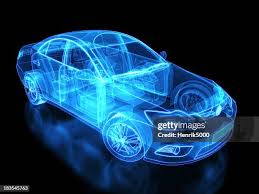The Rise of Electric Cars: Revolutionising Transportation

Introduction to Electric Cars
Electric cars have rapidly emerged as a crucial component in the global transition towards sustainable transportation. As concerns about climate change and air pollution increase, more consumers and manufacturers are leaning towards electric vehicles (EVs). The shift towards electric cars not only represents a change in vehicle technology but also signifies broader societal changes regarding energy consumption and environmental responsibility.
Growth in Market Adoption
According to the International Energy Agency (IEA), the global sales of electric cars reached a record 6.6 million units in 2021, marking a 108% increase from the previous year. Notably, the world’s two largest automotive markets, China and the United States, have been at the forefront of this trend. The Chinese market alone accounted for almost 50% of global electric vehicle sales, driven by substantial government incentives and a robust charging infrastructure.
Technology Advancements
Technological advancements are key to the growth of electric cars. Battery technology has made significant strides, resulting in longer ranges and shorter charging times. For example, Tesla’s Model S now boasts a range of over 400 miles on a single charge. Furthermore, companies like Lucid Motors and Rivian are pushing the boundaries of performance and luxury in the electric vehicle sector, driving competition and innovation.
Environmental and Economic Impact
Electric cars contribute positively to reducing carbon emissions, particularly when charged using renewable energy sources. A report from the European Environment Agency states that transport accounts for around 25% of the EU’s greenhouse gas emissions, with conventional vehicles being a major contributor. Transitioning to electric cars could play a crucial role in meeting climate targets. Economically, the industry is also benefiting from government policies aiming to phase out internal combustion engines, coupled with the increasing cost-competitiveness of electric vehicles.
Challenges Ahead
Despite the bright prospects of electric cars, challenges remain. Infrastructure such as charging stations is still not widespread enough in many regions, causing potential consumers to hesitate. Additionally, the supply chain for battery production, particularly lithium, cobalt, and nickel, raises concerns about environmental and human rights implications. Manufacturers are also grappling with the challenge of making electric vehicles accessible to a broader audience.
Conclusion
The future of electric cars looks promising as the global community pivots towards sustainable practices. With advancements in technology, increased market acceptance, and supportive government policies, electric vehicles are set to become the norm rather than the exception. As society grows more aware of the environmental impact of traditional vehicles, the electric car revolution is gathering momentum, offering a glimpse into a cleaner, greener future. With ongoing innovations and efforts to overcome existing barriers, electric cars could reshape the future of transportation in unprecedented ways.






